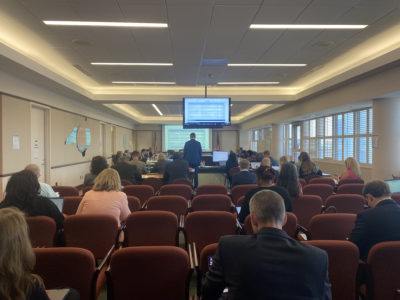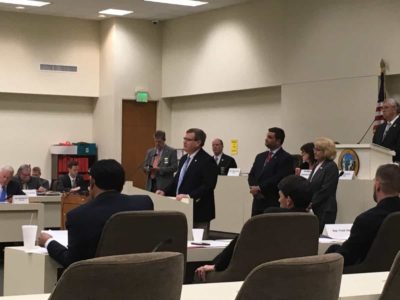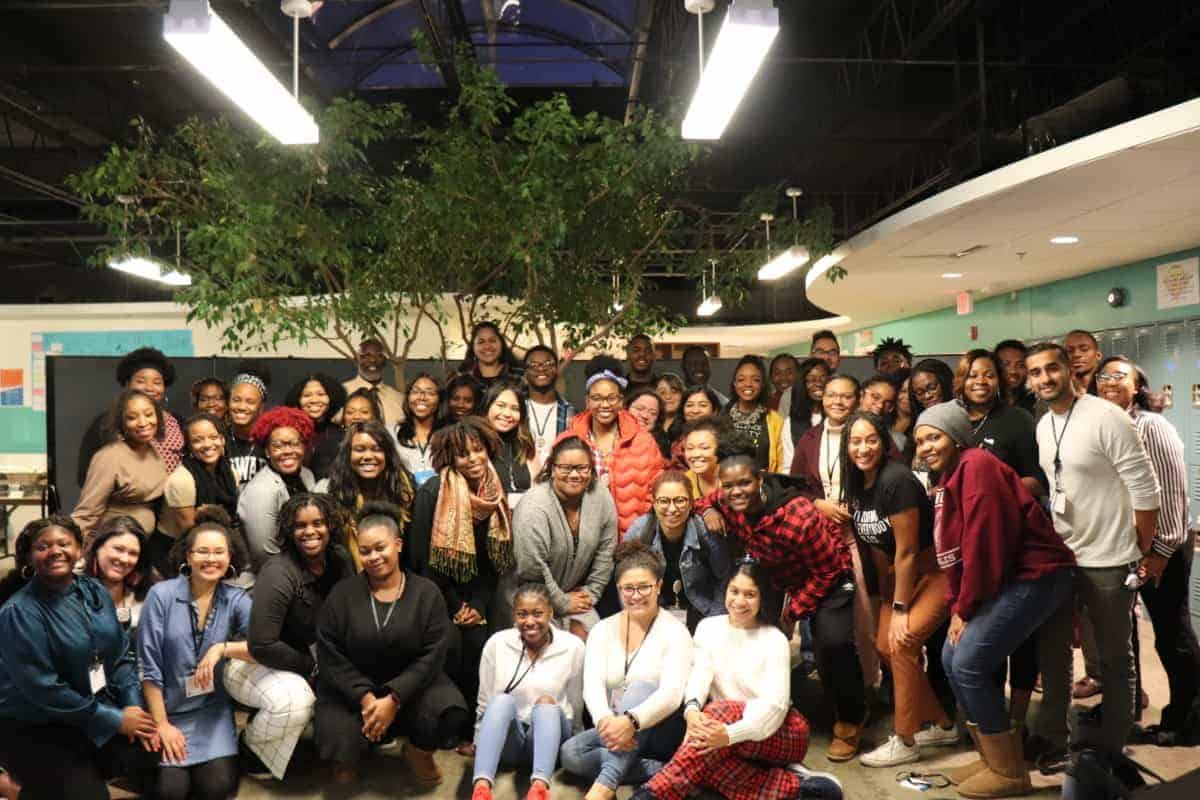
Takeru Nagayoshi was exhausted as he stood to give the opening keynote at the Teach for America 2019 Eastern North Carolina Corps Member of Color Retreat on Saturday. The 2020 Massachusetts Teacher of the Year, Nagayoshi had landed at midnight the night before. He said grades were closing the following Friday, and he’d stopped eating lunch this month because he’s anxious he’ll be behind at school.
He told the crowd he hadn’t had a free weekend for nine weeks. He had recently come off what he described as one of the worst professional development meetings. A white “boomer” lady led a cultural competency session where Nagayoshi was called upon to speak on behalf of the Asian race, and somebody at the session talked about how, in 2019, it’s wrong to call Asian people Oriental.
But, he said, he sacrificed his weekend so he could come to the retreat — the kind that his district and the districts of many of the teachers attending don’t provide for teachers of color.
Keiyonna Dubashi, director of classroom culture and community for Teach for America Corps Member Professional Development, put together last weekend’s event at the Central Park School for Children in Durham. She said it shouldn’t be so rare an opportunity for teachers of color.
“This shouldn’t be a unique experience … I think this should be a part of all professional development. It should be a part of all schools,” she said. “And I think that the more we continue to diversify our teaching force or even thinking about diversity, we should also think about what are the conditions that we are setting to make sure that people are set up to thrive.”
The event brought together teachers for sessions on self care, panel discussions that touched on topics such as decolonization, building coalitions, and solidarity. It was about having hard discussions and time to reflect upon them. It was about meeting people who have had similar experiences, struggles, and traumas.
“This space is not about what skills, what curriculum, what shiny new tool can you use to teach math or to teach reading or to teach science,” Dubashi said. “This space is about what do you need as a person to make sure you’re mentally prepared.”
Nagayoshi talked about his journey to becoming the teacher he is today, and how winning teacher of the year in his state highlighted for him how toxic celebrations of teachers can be.
He said that when he was a kid, he would see his dad get mocked in public for his broken English. And as a short, gay Asian, Nagayoshi was constantly battling preconceptions.
And then, when he won teacher of the year, he ran into another preconception: that of the exceptional individual.
All the media interviews and conversations he had centered on him and his accomplishments, but he said he never saw his achievements as the result of his work alone; they were a collective effort, built upon the work of those who came before him and the work he does with others.
He said this American fetishization of the individual over community is “low-key toxic” and sets up a narrative where both winning and losing are reflections of the individual alone.
And, he said, it’s a particularly damaging narrative for people of color.
“For people of color, it kind of sets us against each other,” he said.
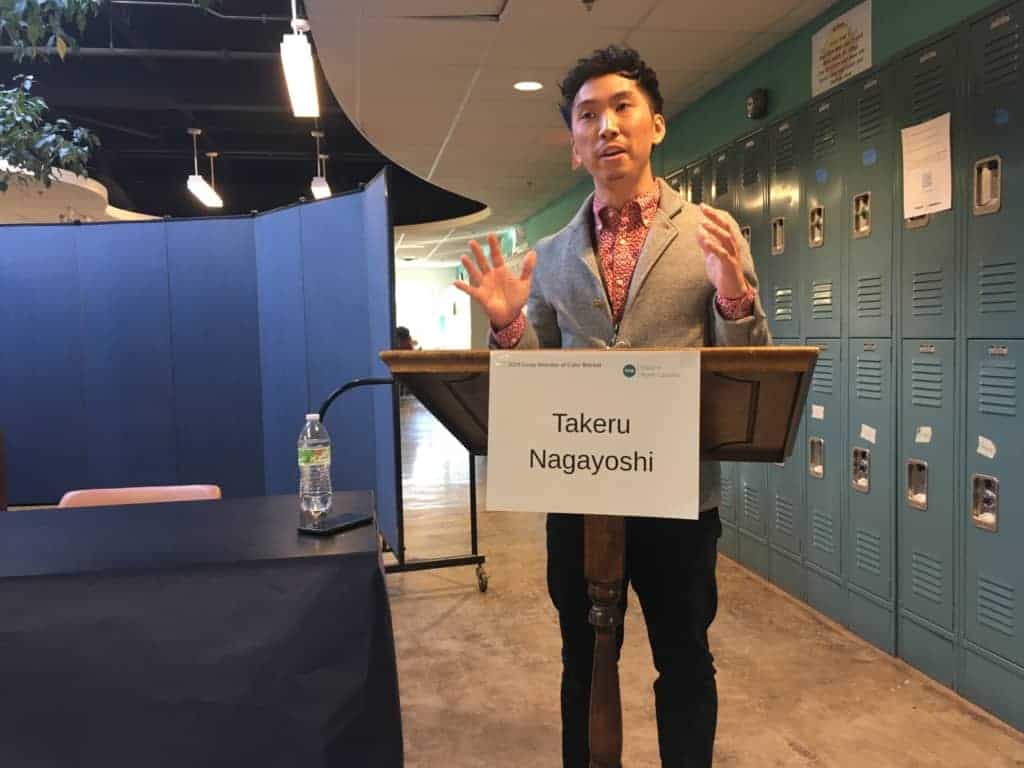
The state teachers of the year compete to become the nation’s top teacher, and as he was looking through the bios of the other teachers, Nagayoshi found himself paying particular attention to the other teachers of color. The majority of the teachers of the year were white women, he said. He said that, selfishly, that made him feel as if he stood out. But then he would look at the teachers of color in the group, and he would start to think of them as his competition.
“In a white-dominant system, people of color, no matter how successful they are, other people of color are always going to be positioned as our competitors,” he said.
A lot of the conversations on Saturday revolved around the need for people of color to be there for one another, rather than giving in to the idea that success for one means failure for the others.
Nagayoshi described it as a model of scarcity — an idea that there is not enough success to go around. It was just one misconception that was challenged over the weekend.
During a panel discussion, Tim’m West, senior managing director for Teach For America’s LGBTQ+ Community Initiative, talked about the messages that people of color receive and the need to challenge them.
One example he gave was a notion he was raised with: as a black person, he was going to have to work three times as hard as his white peers.
“I celebrated that idea until I was like, no,” he said. “Enough is enough.”
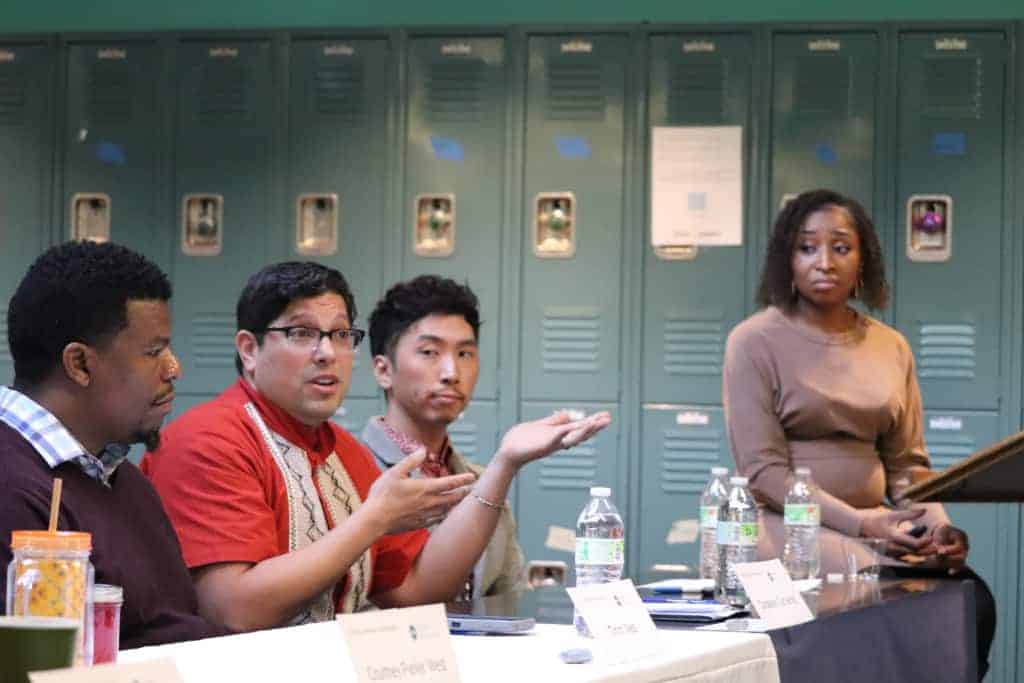
Candelario Cervantez, the national senior managing director for Latinx Alliances at Teach for America, talked about the idea that taking care of one’s self is selfish.
“A lot of times I feel like we’re always giving and having to support others … and you have this sense of guilt. ‘Oh my gosh, if I’m doing this for me, it’s selfish,'” he said.
But he said these days he favors a different view. He likened it to the instructions people get on a plane. If the cabin suddenly depressurizes and the oxygen mask drops down, the instructions are to put your own mask on first before helping anyone else. Otherwise you’ll pass out, and someone will have to help you, Cervantez said.
Jenna Ortiz, an associate for National Community Alliances at Teach for America, said events such as this are some of the few designed specifically for teachers of color.
“I come because it is really important for people of color and indigenous peoples to have a space where they feel brave and safe enough to learn in the ways that are created for them,” she said.
She hopes that when teachers come away from retreats like this, they leave with something tangible. Something they can build on and rely on throughout the rest of their school year.
“I want them to feel empowered in themselves, in their identity, in their histories,” she said. “And I want them to have been able to build a network, relationships in the region that they can continue to lean on for support.”
Editor’s note: Mebane Rash, CEO of EducationNC, serves on the board of Teach for America-Eastern North Carolina.
Recommended reading
